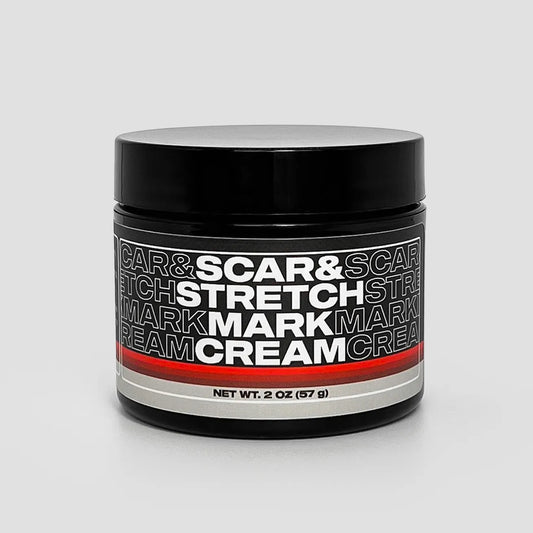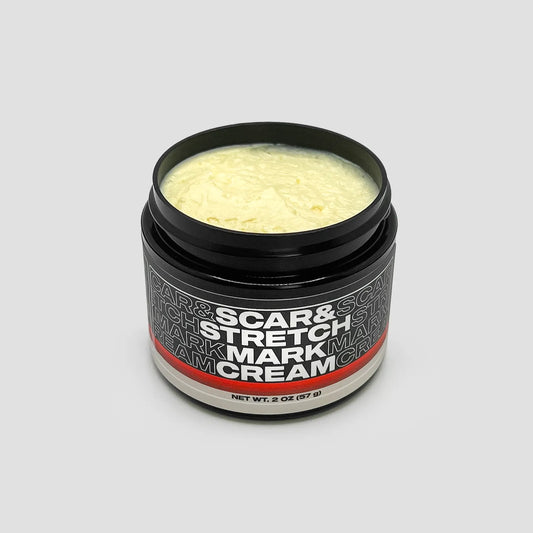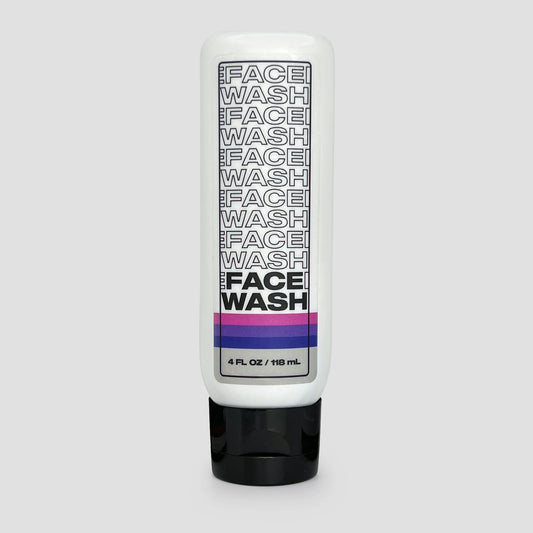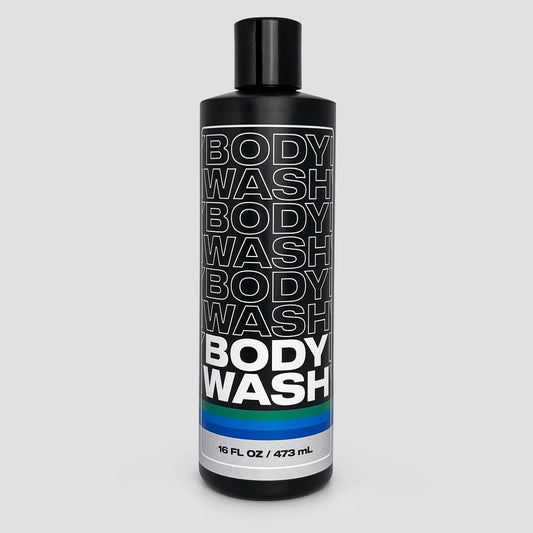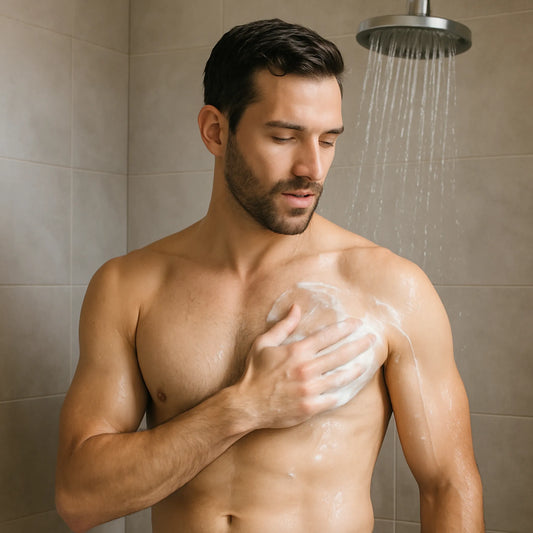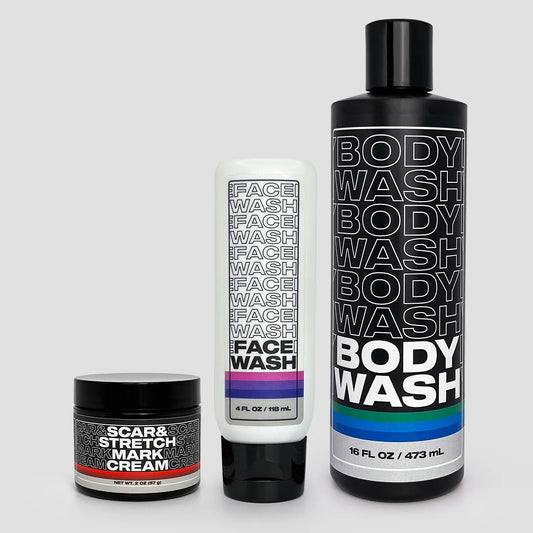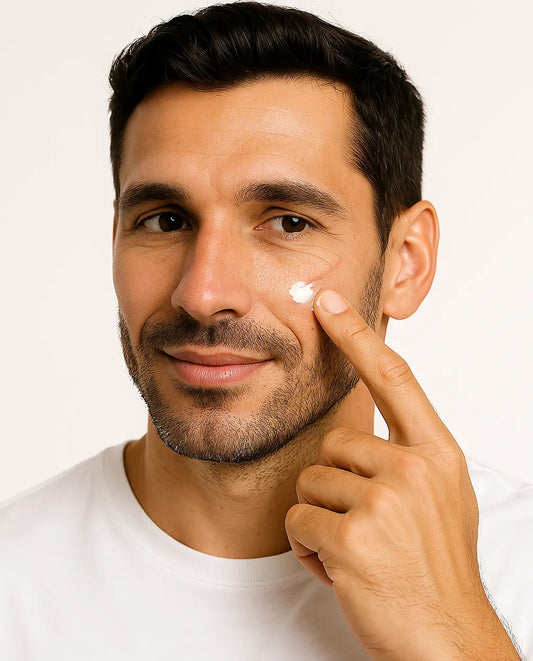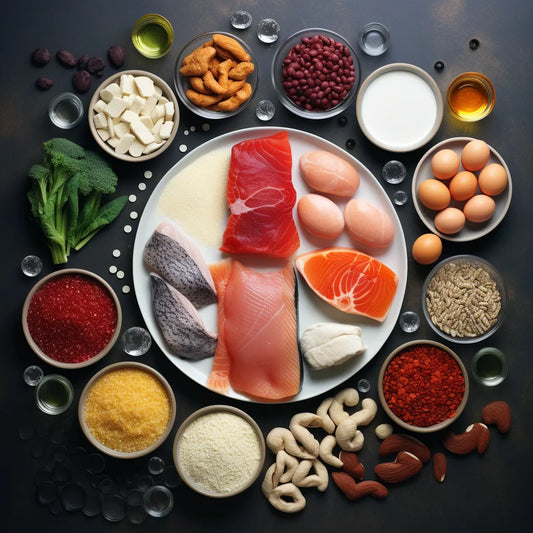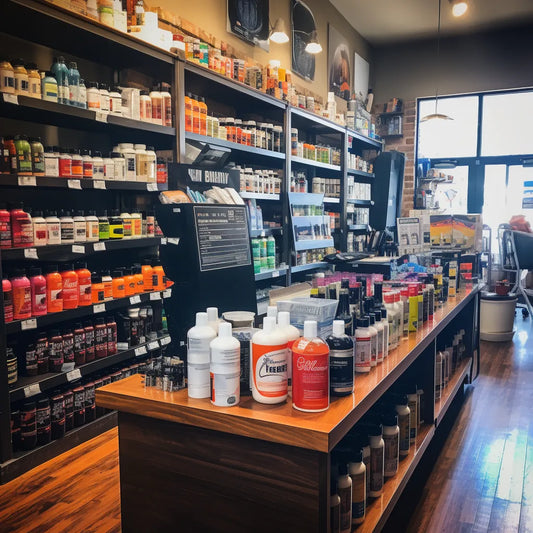
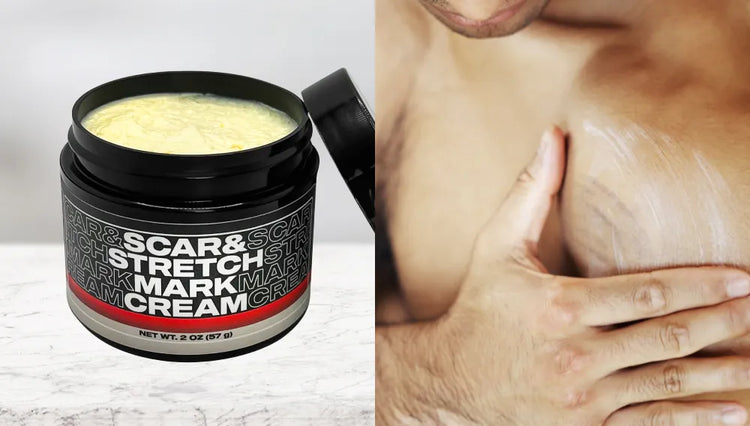
Ever heard of the phrase "you are what you eat?" It's not just a catchy line from your third-grade nutrition class. In the grand gym of life, not only are your muscles built in the kitchen, but your skin is, too. So, fellow warriors of wellness, let's deep dive into the symbiotic relationship between nutrition and your skin.
Part 1: The Skin-Nutrition Connection

Dermatologists and nutritionists around the globe agree: what you put on your plate is as crucial for your skin as what you put on your face. But why? The answer lies in the inherent connection between your body’s largest organ (the skin) and your body’s fuel (food). In essence, your skin reflects your health, and your diet is a major influencer on your health.
Foods rich in antioxidants, vitamins, and minerals serve as your skin’s first line of defense, protecting it against damaging free radicals caused by environmental stressors. They also boost collagen production, combat inflammation, and provide essential hydration — the veritable Avengers team-up for your skin’s well-being!
Just as you wouldn't use low-grade fuel for a high-performance vehicle, you shouldn't be feeding your body anything less than the best. After all, we are, quite literally, made of what we eat. The proteins you consume are broken down into amino acids and used to rebuild your skin cells. The fats you eat are used to maintain the health and integrity of the cell membrane, your skin's first line of defense. And the list goes on!
Understanding the skin-nutrition connection is also about recognizing the value of diversity in your diet. The wider the range of foods you eat, the wider the range of nutrients your skin gets. From fruits and vegetables of different colors to a variety of lean proteins and healthy fats, each food group offers unique benefits that can contribute to the overall health and appearance of your skin.
Part 2: Feeding Your Skin Right - The Essential Nutrients

Let's zero in on the nutrients that your skin is practically begging for:
- Vitamin C: This potent antioxidant is crucial for collagen synthesis, which keeps your skin firm and youthful. It’s your secret weapon against premature skin aging. Load up on oranges, strawberries, bell peppers, and broccoli National Institutes of Health recognizes the importance of Vitamin C as an essential nutrient.
- Vitamin E: Dubbed as your skin's "bodyguard", Vitamin E protects your skin from harmful UV rays and inflammation. Sunflower seeds, almonds, and spinach are excellent sources.
- Omega-3 Fatty Acids: These guys are the anti-inflammatory heroes you need for tackling skin redness and irritation. You'll find them in abundance in fatty fish, walnuts, and flaxseeds, as discussed on the Mayo Clinic website page on fish oil.
- Zinc: This mineral is a powerhouse in wound healing and fighting against skin inflammation and irritation. Reach for legumes, seeds, and eggs to boost your zinc intake.
- Beta Carotene: This antioxidant converts into vitamin A in your body, promoting skin health by preventing sunburn, dry skin, and premature wrinkling. Carrots, sweet potatoes, and spinach are your go-to's here.
Part 3: Power Foods for Power Skin

Now that we’ve unlocked the nutrients, let's talk about the "skin superfoods" that pack them in high doses:
- Avocados: Avocados are loaded with beneficial fats and vitamins E and C, promoting skin flexibility and moisturization.
- Fatty Fish: Think salmon, mackerel, and herring, which are high in omega-3 fatty acids and vitamin E, the dynamic duo for skin health.
- Walnuts: The only nut with a significant amount of omega-3 fatty acids, walnuts also pack in zinc, vitamin E, and selenium, making it a comprehensive skin health booster.
- Bell Peppers: Especially the red ones, are a fantastic source of beta carotene and vitamin C.
- Broccoli: This is packed with vitamins, minerals, and carotenoids — an all-in-one package for your skin.
Remember, though, there’s no single food that will save your skin. A balanced, diverse diet is key to a well-nourished body and radiant skin.
Part 4: Food Foes — What to Avoid for Your Skin’s Sake

Just as there are food friends, there are food foes, too. High-glycemic and processed foods can lead to inflammation and accelerate skin aging. Limit your intake of sugary drinks, pastries, and processed meats for healthier, happier skin.
Alcohol and caffeine are two other substances that can negatively affect your skin. While an occasional drink or cup of coffee won't cause significant harm, overconsumption can lead to dehydration and disturb your skin's natural balance. They can strip away your skin's natural oils and leave it looking dull and dry.
It's also wise to monitor your intake of dairy products. Some studies have suggested a link between dairy and acne due to the hormones present in milk. However, more research is needed in this area, and you should consult with a healthcare professional before making any drastic changes to your diet.
Part 5: Putting It All Together — Diet and Skincare

Balance is the secret ingredient in the recipe for flawless skin. It's not just about eating the right foods but also integrating them into a holistic skincare regimen. So, while you're piling those skin superfoods on your plate, don't forget the importance of a consistent skincare routine, adequate hydration, and yes, that all-important sunscreen.
Remember, the journey to skin health is a marathon, not a sprint. It's about sustainable, long-term changes rather than quick fixes. So, gear up, grab that avocado, and get started on the road to nourishing your skin from within!
In addition to a balanced diet and a consistent skincare routine, regular exercise plays a crucial role in maintaining healthy skin. It increases blood flow, which helps to nourish your skin cells and keep them vital. Sweat also helps to clear out your pores, which can lead to clearer, healthier skin.
Remember that your skin is a reflection of your overall health. It's not just about the foods you eat or the skincare products you use, but a combination of all the healthy habits you incorporate into your lifestyle. So take care of your body, inside and out, and your skin will thank you for it!
Healthy skin isn't just about the right skincare products. It's about a lifestyle that includes a balanced diet, regular exercise, and taking care of your overall health. After all, the best foundation you can wear is glowing, healthy skin.
